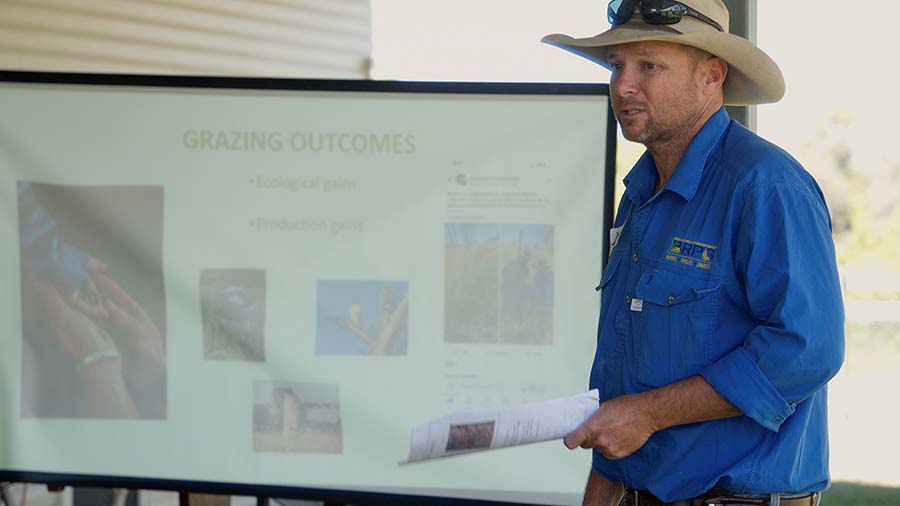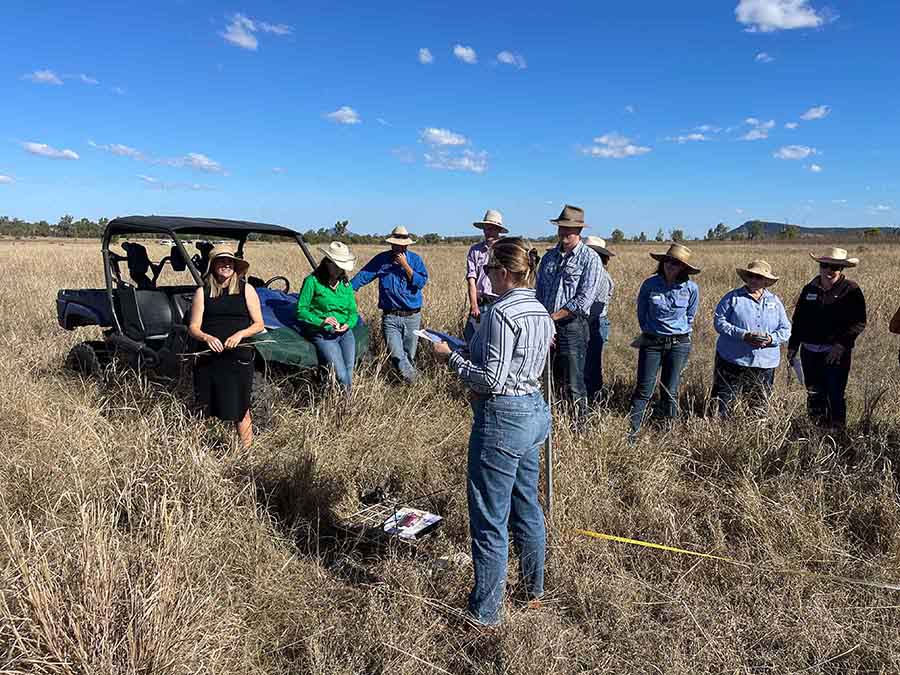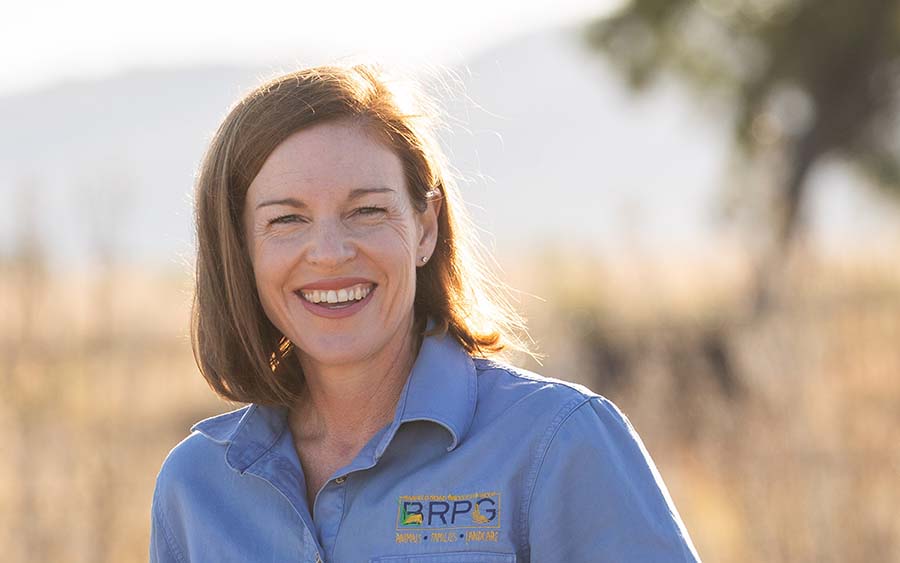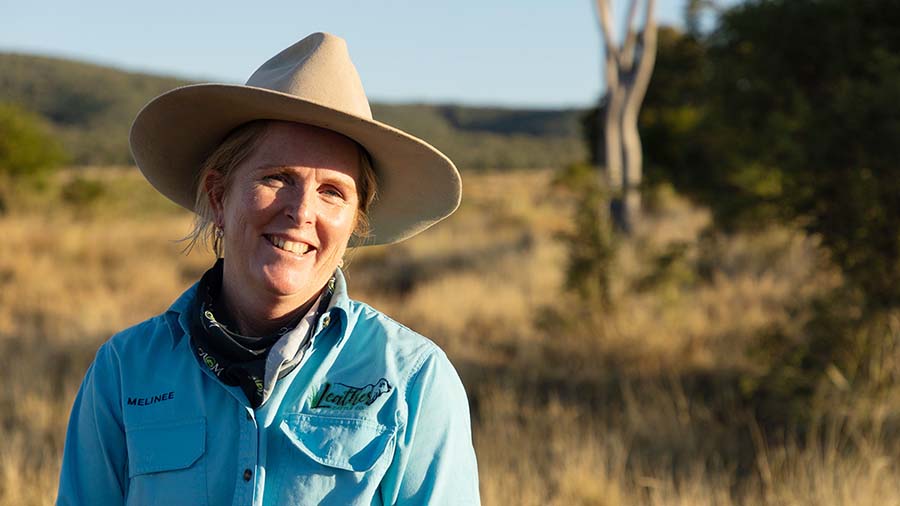A key result of forming the group has been that the members have greater access to training and projects that wouldn't have otherwise been accessible. Some of the opportunities afforded to group members as a result of the BRPG have been:
- Wild Dog Producer Demonstration Site
- Soil your Undies program
- Landcare Farming Natural Capital and soil carbon project
- Paperless workshops
- Feed budgeting workshops
- First aid training
- Nicole Masters Soil Health workshop
- Low Stress Stock Handling School
- Climate training workshop
- Peer to peer facilitator training
These opportunities have yielded significant results, as BRPG members take up new technologies, learnings and practices, resulting in widespread benefits to businesses, the environment and the community. Many of these programs have equipped producers with the education and tools they need to work towards CN30, a goal that remains a core focus of the group.
Many of these programs have equipped producers with the education and tools they need to work towards CN30, a goal that remains a core focus of the group.
'Usually, all it takes is a phone call or an email to an organisation about delivering these opportunities, and they're often very receptive because we are an engaged group of producers,' says Melanie, 'We've got a real strength in numbers.'
One of the group's great successes has been that now, rather than having to source these opportunities themselves, many organisations approach the BRPG wanting to deliver training programs and projects.
 A key result of forming the group has been that the members have greater access to training, programs and projects that wouldn't have otherwise been accessible.
A key result of forming the group has been that the members have greater access to training, programs and projects that wouldn't have otherwise been accessible.
While the business and environmental outcomes have been fantastic, the group has been vital in supporting the wellness and growth of individuals in the community. Several group members outlined the positive impact the BRPG has had on mental health during tough times. It has also facilitated the development of student-mentor relationships. BRPG member Alana Carter was afforded two scholarship opportunities as a result of the group. She highlights that the two Mels have been incredible mentors to her and other group members and says that she wouldn't have taken the leap to apply for these scholarships without their encouragement.
While the outcomes of the group are immensely positive, there have been several challenges along the way. Melanie recalls that one of the biggest challenges has been maintaining engagement and momentum within the group. The COVID-19 pandemic impacted the group and, for a while, meetings needed to be run through video calls, which slowed engagement. Melanie says that maintaining good engagement takes work, but knows that as long as they are focusing on their strategic plan, and equipping their members with knowledge and skills, the group will continue to transform businesses, land and lives for years to come.
Image credits: Banner image and snapshot image courtesy of Amy Holcombe.





